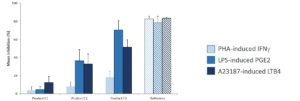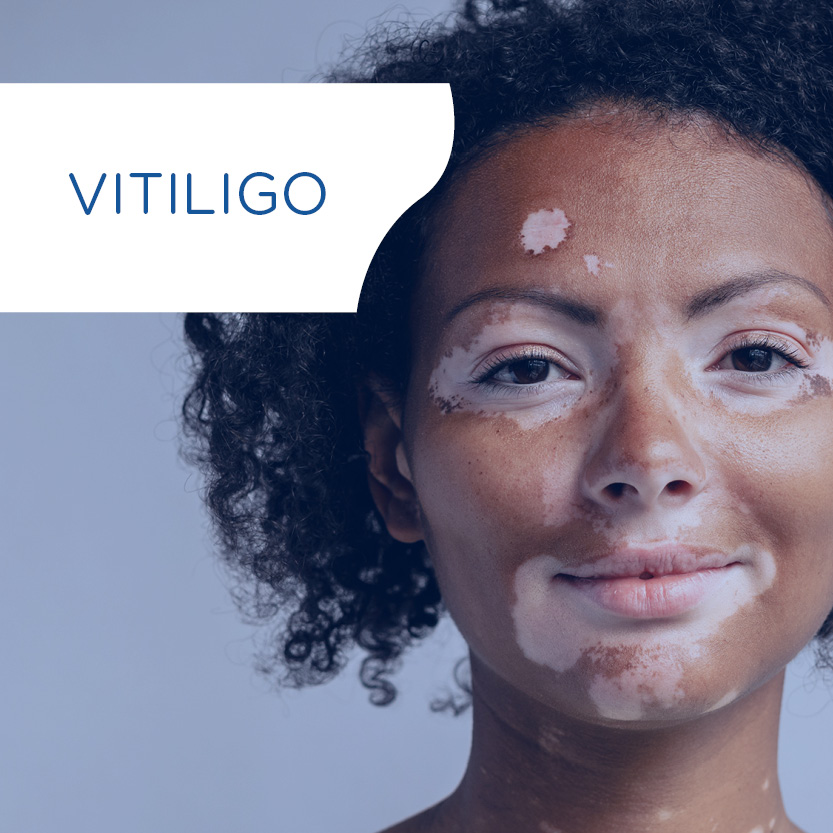Bioalternatives has several canine in vitro models such as canine primary cells, canine 2D&3D in vitro models and in vitro models of canine whole blood.
We have also developed models and protocols suitable for modeling pathologies (inflammation, infections, senescence, degeneration, atopic dermatitis) or aggressions (stress, wound healing).
We are presenting here some results from a study conducted on canine whole blood model.
Objective of the study using canine whole blood
The objective of this study was to evaluate the anti-inflammatory and immunomodulatory effects of a product (at different concentrations: C1 / C2 / C3) on the production of IFNg (T-lymphocyte activity) and on the activation of COX-2 (PGE2) and 5-LOX (LTB4) pathways using in vitro canine whole blood models.
The study was performed on whole blood of 5 dogs.
1 – Canine whole blood parameters
–
Blood cell counts and other blood parameters were measured using ABC Vet with dog Smart card.
–

2 – Evaluation of T-Lymphocytes activity
–
- In the absence of stimulation, very low amounts of IFNg were produced (< LOQ)
- Stimulation with PHA increased IFNg release (> 1000 pg/ml)
- Pre-treatment with the product had a slightly effect on PHA-induced IFNg release
–
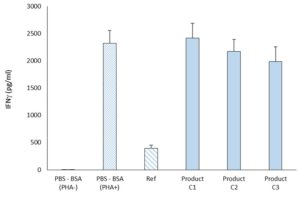
3 – Evaluation of Cox-2 activity
–
- In the absence of stimulation, very low amounts of PGE2 were produced
- Stimulation with LPS increased PGE2 release (> 100000 pg/ml)
- Pre-treatment with the product inhibited PGE2 production in a dose dependent manner and was as effective as the reference at the highest concentration (C3)
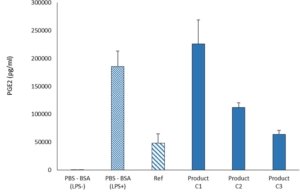
4 – Evaluation of 5-Lox activity
–
- In the absence of stimulation, low amounts of LTB4 were produced
- Stimulation with A23187 increased LTB4 release (> 90000 pg/ml)
- Pre-treatment with the product product inhibited LTB4 production in a dose dependent manner
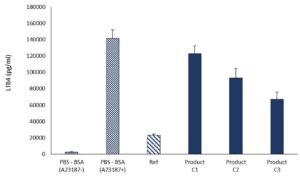
Conclusion – Mean inhibition
–
- Blood cells were functional as they produced PGE2, IFNg and LTB4 in response to stimuli
- For all the tested stimuli, references inhibited more than 80% of the response for all dogs
- The product is very efficient at reducing inflammation in dog while maintaining normal T cell mediated responses
